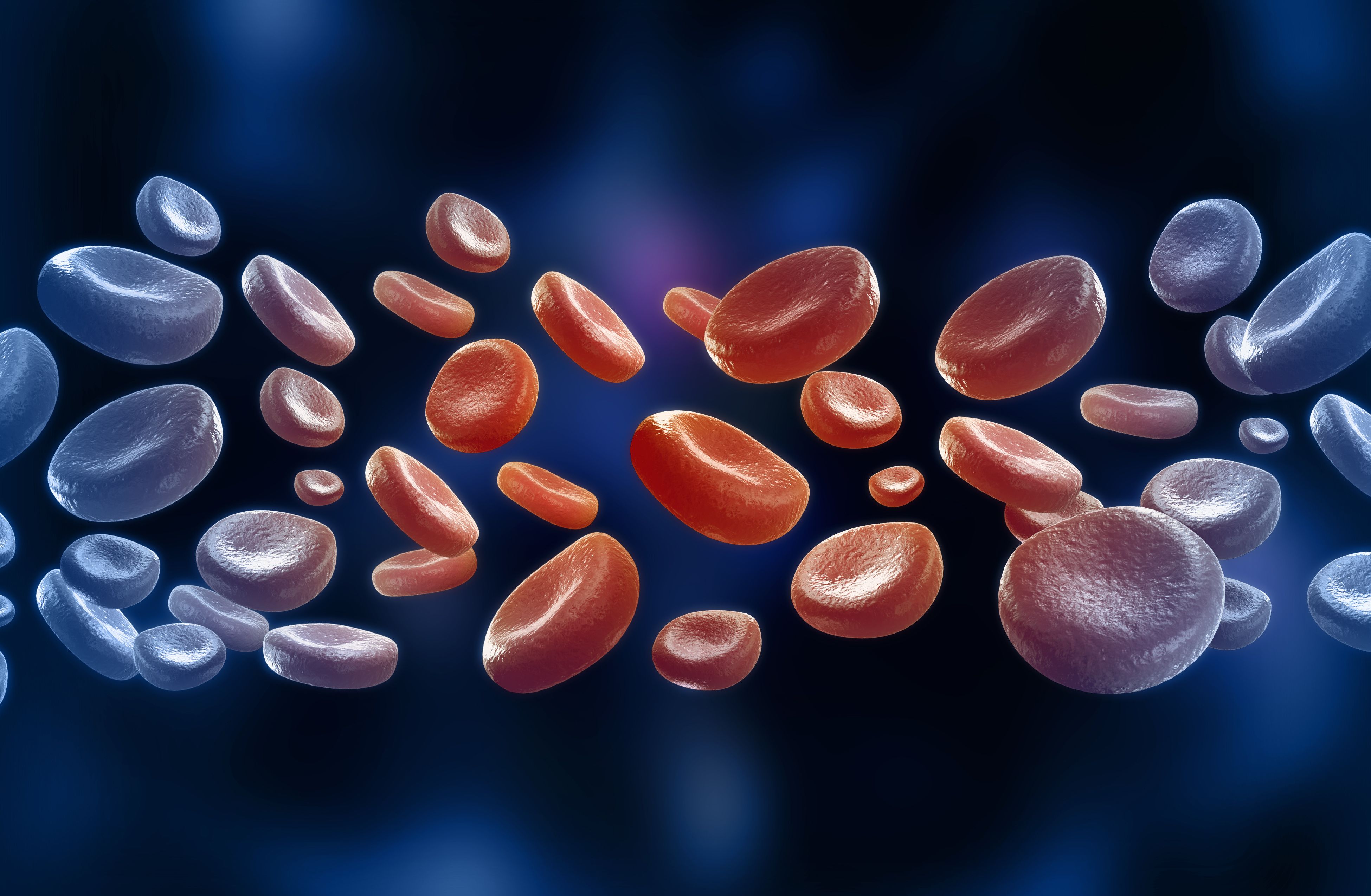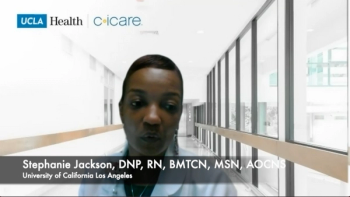
Treating patients with myeloproliferative neoplasms in accelerated phase (MPN-AP) remains an ongoing challenge as there are still no standard therapeutic approaches, says an expert.


Treating patients with myeloproliferative neoplasms in accelerated phase (MPN-AP) remains an ongoing challenge as there are still no standard therapeutic approaches, says an expert.

Due to the favorable efficacy and safety profiles of daratumumab plus lenalidomide and dexamethasone, researchers speculate that the combination may become the new standard of care in multiple myeloma treatment.

Patients with myeloma and a negative MRD may be at a reduced risk of mortality and other progression-free survival events.

While survival rates in T-cell acute lymphoblastic leukemia remain around 90%, researchers are optimistic that the use of targeted therapies and immunotherapies will continue to improve treatment options.

Stephanie Jackson, DNP, MSN, RN, AOCNS, BMTCN, discusses her recent School of Nursing Oncology presentation.

The prognostic value of minimal residual disease negativity in multiple myeloma may make it a suitable surrogate endpoint in clinical trials, according to a group of researchers.

Zanubrutinib (Brukinsa) is now FDA approved for the treatment of adults with Waldenström Macroglobulinemia.

Newly standardized grading criteria will help to regulate the management of CAR T-cell therapy¬–related toxicities, like cytokine release syndrome (CRS) and immune effector cell-associated neurotoxicity syndrome (ICANS).

Kelly Garvin, BSN, RN, OCN, discusses the impact of CAR T-cell therapy on patients and how nurses care for them, as well as her expectations on how indications will grow.

As patients with hematologic cancers live for normal life expectancies, the consequences associated with opioid use becomes more severe.

Tisagenlecleucel is a CAR T-cell therapy approved to treat follicular lymphoma that has minimal toxicity and is safe in the outpatient setting.

The FDA’s priority review designation to abatacept may help to expand the stem cell donor pool by lowering acute graft-versus-host-disease risk in both children and adults, experts say.

Kelly L. Garvin, BSN, RN, OCN, discusses what changes she hopes to see in CAR T-Cell therapy treatment over the coming years.

Although the use of CAR T-cell therapies are associated with potentially serious adverse events, the treatment provides patients whose disease has failed to respond to previous treatments with hope, according to Kelly Garvin, BSN, RN, OCN.

Proper training can help oncology nurses act as intensivists and quickly identify if their patients are experiencing any CAR T-cell therapy-related adverse events.

Overall, 71% of patients with AL amyloidosis and 33% of those with heavily pretreated multiple myeloma achieved a partial response or greater after receiving treatment with low dose venetoclax.

Allogeneic hematopoietic stem cell transplant (HSCT) is still the sole curative therapeutic modality for patients with myelofibrosis.

Treating patients with brentuximab vedotin in combination with doxorubicin, vinblastine, and dacarbazine with and without consolidative radiotherapy resulted in strong efficacy and encouraging tolerability in early-stage, unfavorable-risk Hodgkin lymphoma.

At 12 months, 97% patients treated with single infusions of cilta-cel had responded to the therapy.

Patients with multiple myeloma are potentially at greater risk of developing severe COVID-19 after the SARS-COv-2 vaccination induced suboptimal antibody response.

A recent study showed that belumosudil induced clinically meaningful, durable responses among a varied cohort of patients with chronic graft-versus-host-disease.

More data are needed regarding the duration of response associated with this combination to make it a “mainstream” treatment option for patients, according to an expert from the University of Michigan Rogel Cancer Center.

The combination of ficlatuzumab and chemotherapy demonstrated some promising results in a small group of patients with relapsed/refractory acute myeloid leukemia.

Data from a 5-year follow-up study confirmed that CPX-351 continues to be associated with long-term remission and improved overall survival compared to 7+3 chemotherapy in certain older patients with acute myeloid leukemia.

Thomas G. Martin, MD, discusses the results of the IKEMA study and the future of isatuximab combination.